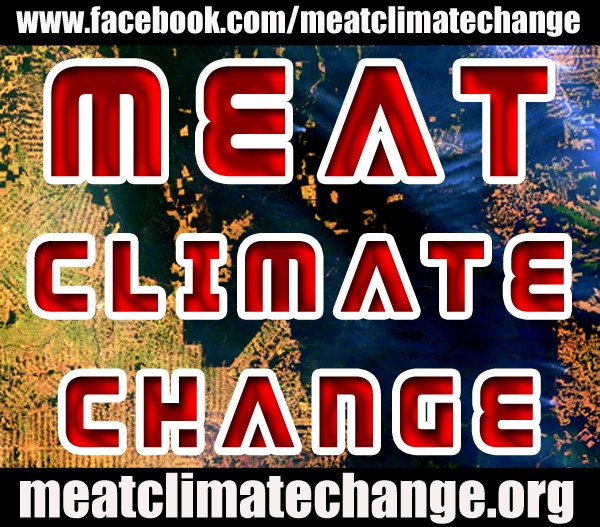Drought and Livestock
In the Central Valley, we passed many livestock farms and animals reeling from the effects of the drought. Hay prices have doubled in California, and ranchers who can afford it, are sending their herds out of the state. Between January and April, a hundred thousand cattle were hauled away. But many factory farms are still filled with animals, and I realized that a lot of the crops still growing were not meant for human consumption, but to produce feed for livestock. What a waste and poor use of the state's remaining water.
Rarely discussed or acknowledged, livestock production is responsible for 51% of greenhouse gas emissions. Animal agriculture is also responsible for vast amounts of fresh water use as well - Texas, California, Oklahoma, and North Carolina each used more than 125 Mgal/d for livestock, and accounted for 35 percent of total livestock withdrawals in 2005 in the US. Animal agriculture is highly water-intensive - the total amount of water needed to produce one pound of beef is 1,799 gallons and one pound of pork takes 576 gallons. Given the limited resource water has become in the state, continuing livestock production is increasingly unsustainable, and downright reckless.
Downwind of each animal factory we passed, an overpowering smell penetrated the sealed air-conditioned bus, lasting minutes and miles away from the farms.The strong uric acid stench was much more powerful than on my previous trips, maybe because they were not washing out animal stalls as frequently as before. Is there a pileup of methane on these farms as well?
All of the cows and other livestock I saw were female and I was reminded that their exploitation is gendered by patriarchal development and modes of consumption. In hunter-gatherer societies, female and young animals were often spared as they were valued for their reproductive roles. In factory farms, female animals are exclusively used and abused, with a few males milked for sperm. As part of this hyper-masculine, misogynist sex-specie system, male chicks having zero use value, are simply tossed in the trash,
For ecofeminists, how female non-human animals are treated affects how female human animals are treated. The oppression of female non-human animals by patriarchal development is related to the devaluing of all agents of reproduction - human female animals and the earth itself. I am deeply affected by the docile creatures I see outside the window, and feel guilty for not doing more to make them free. These innocent non-human animals lived unnaturally, without their normal culture and interests like sexuality. Powerless, these non-human female animals were enslaved in separatist colonies to live shortened, meaningless lives whose only value lay in human consumption.
The gendered view of livestock and nature as freely available for male development and exploitation extends to the sense of entitlement over water and its use. In a dire situation of "Extreme" and "Exceptional Drought" throughout the state, water which is the basis for all animal and marine life, is thoughtlessly usurped for male maldevelopment, making it less available for all others. The mismanagement of the state's water resources to support unsustainable agriculture and livestock production is leading to countless loss of biodiversity. Already pushed to the brink by the prolonged drought, many ecosystems and animal habitats are being denied access to the few remaining water basins and deltas being drained and diverted to agriculture.
Conclusion
Male maldevelopment is becoming a death sentence for much of California's Central Valley's non-human animal inhabitants. It is also affecting small farmers, farm workers, poor communities, and many others throughout the state. This crisis is an opportunity to re-think and evaluate water use in the state. Restrictions on water use will help to protect and preserve biodiversity. Transitioning from water-intensive agriculture to drought-tolerant crops, and ending livestock production entirely, are both critical to building sustainable development and communities in the state.
Each day without rainfall, the situation becomes more critical, compounded by state officials' mismanagement. If and when the rains come in the Central Valley, the problems caused by water shortages will not go away for long, especially if it continues on the same unsustainable development path. California is a warning to regions being transformed to drought-prone by climate change, that water-intensive agriculture and factory farms are going to fail spectacularly and rapidly. Unless they change quickly, the people in California and elsewhere are in for a rude awakening
(Note: You can view every article as one long page if you sign up as an Advocate Member, or higher).





